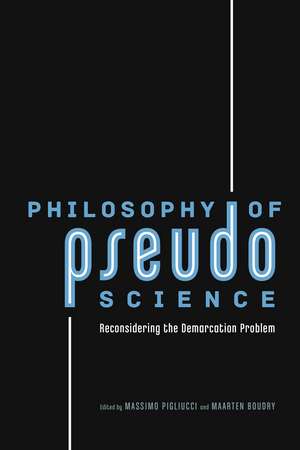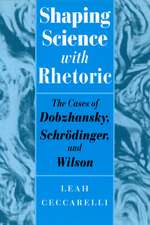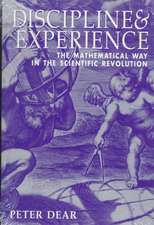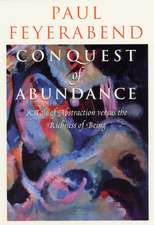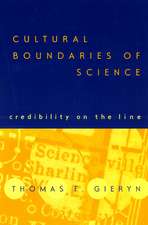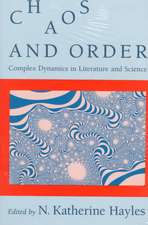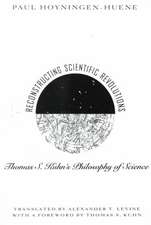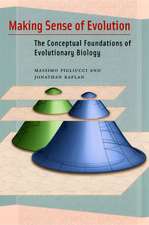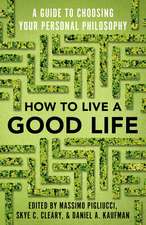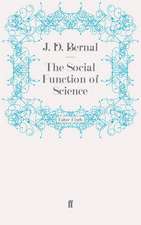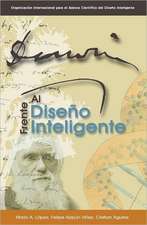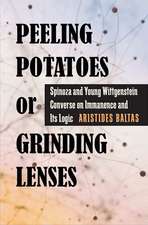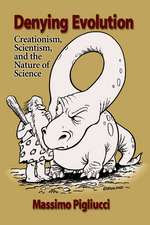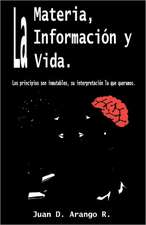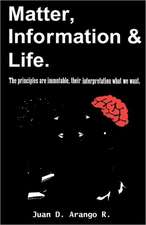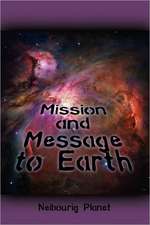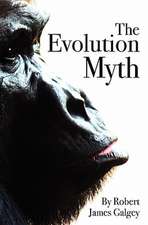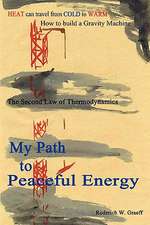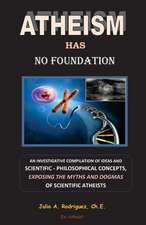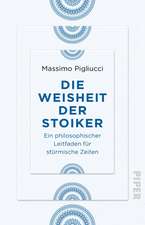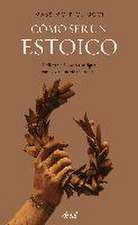Philosophy of Pseudoscience: Reconsidering the Demarcation Problem
Editat de Massimo Pigliucci, Maarten Boudryen Limba Engleză Paperback – 26 aug 2013
What sets the practice of rigorously tested, sound science apart from pseudoscience? In this volume, the contributors seek to answer this question, known to philosophers of science as “the demarcation problem.” This issue has a long history in philosophy, stretching as far back as the early twentieth century and the work of Karl Popper. But by the late 1980s, scholars in the field began to treat the demarcation problem as impossible to solve and futile to ponder. However, the essays that Massimo Pigliucci and Maarten Boudry have assembled in this volume make a rousing case for the unequivocal importance of reflecting on the separation between pseudoscience and sound science.
Moreover, the demarcation problem is not a purely theoretical dilemma of mere academic interest: it affects parents’ decisions to vaccinate children and governments’ willingness to adopt policies that prevent climate change. Pseudoscience often mimics science, using the superficial language and trappings of actual scientific research to seem more respectable. Even a well-informed public can be taken in by such questionable theories dressed up as science. Pseudoscientific beliefs compete with sound science on the health pages of newspapers for media coverage and in laboratories for research funding. Now more than ever the ability to separate genuine scientific findings from spurious ones is vital, and The Philosophy of Pseudoscience provides ground for philosophers, sociologists, historians, and laypeople to make decisions about what science is or isn’t. Preț: 260.64 lei
Nou
Puncte Express: 391
Preț estimativ în valută:
49.87€ • 52.21$ • 41.27£
49.87€ • 52.21$ • 41.27£
Carte disponibilă
Livrare economică 17-31 martie
Livrare express 28 februarie-06 martie pentru 39.64 lei
Preluare comenzi: 021 569.72.76
Specificații
ISBN-13: 9780226051963
ISBN-10: 022605196X
Pagini: 480
Ilustrații: 1 halftone, 2 line drawings
Dimensiuni: 152 x 229 x 30 mm
Greutate: 0.64 kg
Editura: University of Chicago Press
Colecția University of Chicago Press
ISBN-10: 022605196X
Pagini: 480
Ilustrații: 1 halftone, 2 line drawings
Dimensiuni: 152 x 229 x 30 mm
Greutate: 0.64 kg
Editura: University of Chicago Press
Colecția University of Chicago Press
Notă biografică
Massimo Pigliucci is professor of philosophy at the City University of New York. He has written many books, including Nonsense on Stilts: How to Tell Science from Bunk and, most recently, Answers for Aristotle: How Science and Philosophy Can Lead Us to a More Meaningful Life. Maarten Boudry is a postdoctoral fellow of the Flemish Fund for Scientific Research at Ghent University and wrote a dissertation on pseudoscience, Here Be Dragons: Exploring the Hinterland of Science.
Cuprins
Introduction Why the Demarcation Problem Matters
Massimo Pigliucci and Maarten Boudry
Massimo Pigliucci and Maarten Boudry
Part I What’s the Problem with the Demarcation Problem?
1. The Demarcation Problem: A (Belated) Response to Laudan
Massimo Pigliucci
2. Science and Pseudoscience: How to Demarcate after the (Alleged) Demise of the Demarcation Problem?
Martin Mahner
3. Toward a Demarcation of Science from Pseudoscience
James Ladyman
4. Defining Pseudoscience and Science
Sven Ove Hansson
5. Loki’s Wager and Laudan’s Error: On Genuine and Territorial Demarcation
Maarten Boudry
Part II History and Sociology of Pseudoscience
6. The Problem of Demarcation: History and Future
Thomas Nickles
7. Science, Pseudoscience, and Science Falsely So-Called
Daniel P. Thurs and Ronald L. Numbers
8. Paranormalism and Pseudoscience as Deviance
Erich Goode
9. Belief Buddies versus Critical Communities: The Social Organization of Pseudoscience
Noretta Koertge
Part III The Borderlands between Science and Pseudoscience
10. Science and the Messy, Uncontrollable World of Nature
Carol E. Cleland and Sheralee Brindell
11. Science and Pseudoscience: The Difference in Practice and the Difference It Makes
Michael Shermer
12. Evolution: From Pseudoscience to Popular Science, from Popular Science to Professional Science
Michael Ruse
Part IV Science and the Supernatural
13. Is a Science of the Supernatural Possible?
Evan Fales
14. Navigating the Landscape between Science and Religious Pseudoscience: Can Hume Help?
Barbara Forrest
Part V True Believers and Their Tactics
15. Argumentation and Pseudoscience: The Case for an Ethics of Argumentation
Jean Paul Van Bendegem
16. Why Alternative Medicine Can Be Scientifically Evaluated: Countering the Evasions of Pseudoscience
Jesper Jerkert
17. Pseudoscience: The Case of Freud’s Sexual Etiology of the Neuroses
Frank Cioffi
18. The Holocaust Denier’s Playbook and the Tobacco Smokescreen: Common Threads in the Thinking and Tactics of Denialists and Pseudoscientists
Donald Prothero
Part VI The Cognitive Roots of Pseudoscience
19. Evolved to Be Irrational? Evolutionary and Cognitive Foundations of Pseudosciences
Stefaan Blancke and Johan De Smedt
20. Werewolves in Scientists’ Clothing: Understanding Pseudoscientific Cognition
Konrad Talmont-Kaminski
21. The Salem Region: Two Mindsets about Science
John S. Wilkins
22. Pseudoscience and Idiosyncratic Theories of Rational Belief
Nicholas Shackel
23. Agentive Thinking and Illusions of Understanding
Filip Buekens
Contributors
Index
Recenzii
“The problem of demarcation—distinguishing credible science from pseudoscience—is a crucial one, but one that has generally been neglected in recent philosophy of science. It is the issue that underlies such topical debates as that between evolutionists and creationists or intelligent design theorists, for example. This volume does a great service by bringing an impressive range of leading philosophers of science from a wide variety of perspectives to reconsider the issue. It is much to be hoped that its publication will spark a revival of interest in this vital issue.”
“Philosophy of Pseudoscience is a remarkable contribution to one of the most vexing problems in science: the ‘demarcation’ problem, or how to distinguish science from nonscience. The well-designed diversity of topics and the collective breadth of knowledge of the authors make this book the most comprehensive and authoritative treatise on a majority of the traditional and current demarcation issues. . . . You have a jewel in your hands.”
"A manual to overcome our natural cognitive biases."
“If the philosophical problem of demarcating science from pseudoscience has a stale reputation, this book is a revitalizing gust of fresh air. Philosophers Pigliucci and Boudry assemble 23 essays that challenge Larry Laudan’s famous 1983 proclamation of the demarcation problem’s demise. Renewed attention to the philosophical questions that pseudoscience raises mirrors an uptick in interest in pseudoscience among historians, as exemplified by Michael Gordin’s The Pseudoscience Wars. Complementing such work, these essays bring focused attention to the practice and historical development of science. . . . A superb introduction to foundational questions that every philosophy student should confront. . . . Accessibly written . . . intellectually adventurous. . . . Essential.”
“In Gary Larson’s cartoon ‘Scientist Hell,’ a smirking devil ushers an apprehensive man (beard, spectacles, white lab coat) into a room of nattering enthusiasts. The sign on the door reads, ‘Psychics, Astrologists & Mediums Eternal Discussion Group.’ If a similar room awaits philosophers, the present volume might come in handy.”
